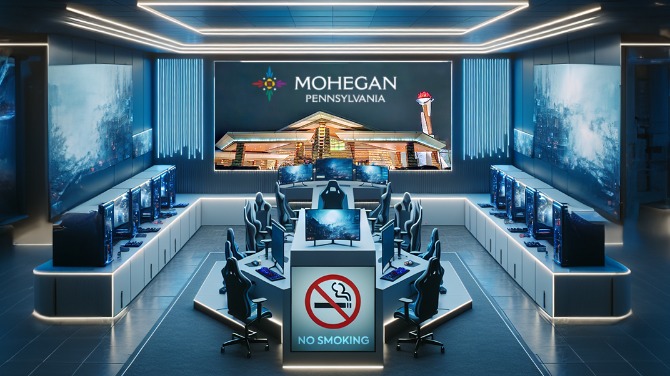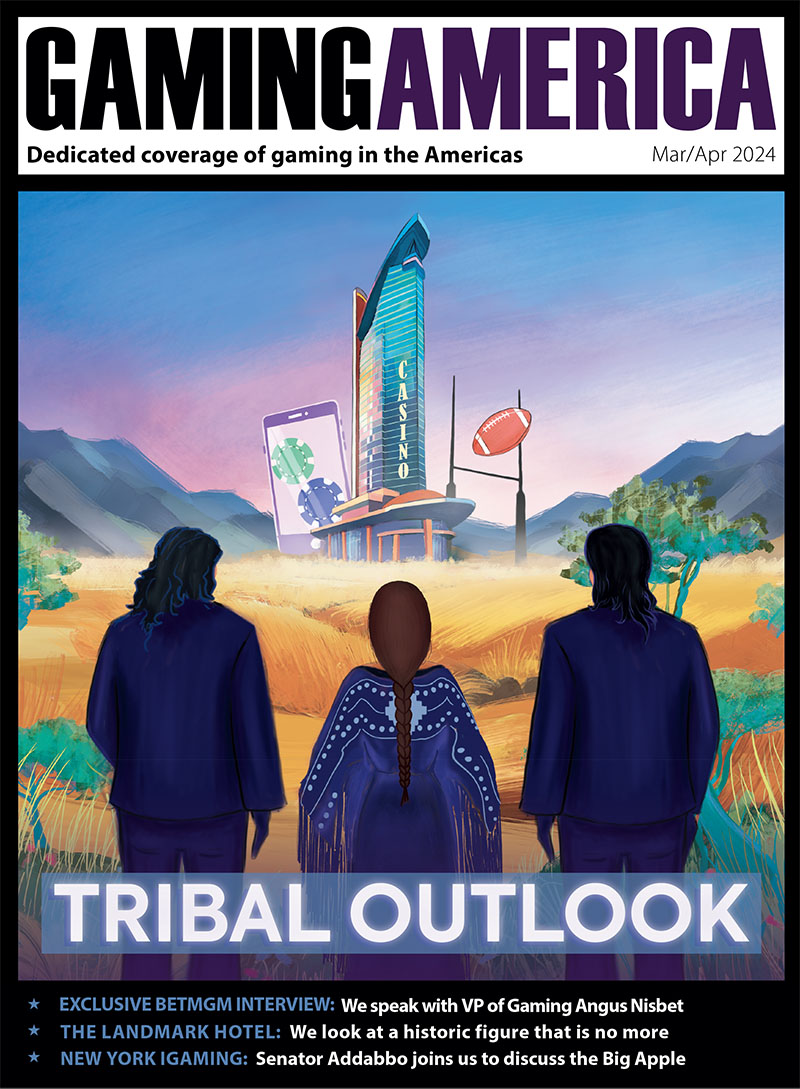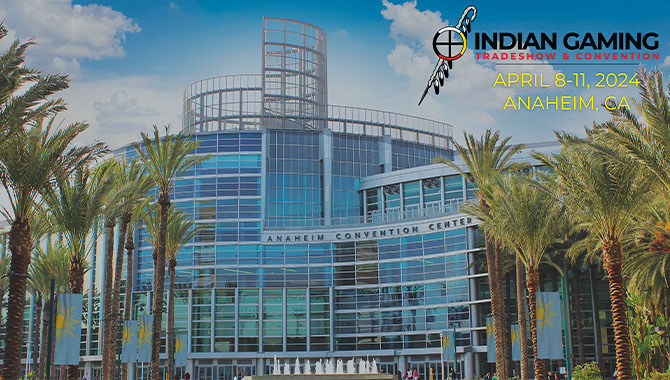
As detailed in this issue’s From the Top column, New Jersey gaming is currently thriving. Online gambling and sports betting growth statewide is such that land-based casino revenue declines – unavoidable due to the COVID-19 pandemic – are being almost completely offset. Before coronavirus, New Jersey was on a sharp upward trajectory – and since, it has done as well as any other major gaming jurisdiction to stand tall during such an unprecedented era. Given the restrictions and limitations imposed by a global pandemic, the performance of Atlantic City casinos has been extremely strong on a relative scale.
But there was a time when such financial solidity was nowhere near guaranteed. While executives we have spoken to have pointed out “rags to riches” is perhaps an unfair reflection – Atlantic City has traditionally been the second-biggest US gaming hub after Las Vegas – it’s no secret the Garden State has undergone a complete revival over the last few years.
If you think gaming percentage falls have been bad during COVID-19, just think how much higher they would have been had the pandemic hit a decade ago, when New Jersey gaming had a far bleaker outlook.
In many ways, a fairer comparison would look at New Jersey before coronavirus, when it was leading regulated gaming’s charge across the US. Even during the pandemic, though, records have tumbled for its digital casinos and sportsbooks; a feat it would have been difficult to foresee during a period when property closures were the biggest news items on Atlantic City’s agenda. So how did the jurisdiction turn things around and recover so well? And can the region offer a blueprint to other states looking to generate extra tax revenue to help recover from the devastation of COVID-19?
An all-time low
In examining the New Jersey story, several key factors stand out, like the overturning of PASPA, the role of the regulator and the rise of online gaming. But to fully understand the state’s recent journey, we must first ascertain exactly where New Jersey gaming was historically. At The Innovation Group, Thomas Zitt, EVP and Brian Wyman, SVP, operations & data analytics, have collaborated with Gaming America to evaluate New Jersey’s modern history. Following positive projections in the 1990s, they conclude that by 2006, the market’s downward trend meant a confidence crash.
Initially, the outlook for New Jersey’s gaming hub was positive from the mid-1990s, when gaming revenue was in the $3.5bn range through the mid-2000s and a high water mark of $5.2bn was reached in 2006. According to The Innovation Group, much of the lift during this period resulted in substantial capital investment in the market, disproportionately stimulated by Borgata’s market entry in 2003 as the region’s first modern destination resort, whose president & COO, Melonie Johnson, features later in this issue. A 7.5% market lift that year can largely be attributed to the property.
But as Zitt and Wyman tell Gaming America, the reality of future regional competition subsequently set in: “Concerns about the market were most substantial as Pennsylvania began opening properties in 2006. This new competitive market next door resulted in a 4.6% decline that year and a 5% decline the following year. 2006 ultimately was followed by 10 consecutive years of decline exacerbated by the Great Recession beginning in 2009, and then Maryland and New York City opening their first casinos between 2010 and 2012.
“During these years of competitive expansion, The Innovation Group predicted the market would drop by nearly $1.5bn to $3.8bn as a result of initial competition from Pennsylvania, New York and Maryland. But then came the Great Recession, and by 2015 the full impact of regional competition and economic devastation was felt. 2014 brought the closures of the Atlantic Club, Showboat and Trump Plaza, and the proverbial nail in the coffin came in September 2014 when Revel, meant to be the new shiny object in Atlantic City, closed its doors. Declines of 14.7% in 2014 and 21.3% in 2015 left Atlantic City gaming revenue at a mere $2.4bn, a more than 50% decline from its 2006 peak of $5.2bn. Confidence in the market was at an all-time low.”
It is perhaps poetic that Revel has since been reborn as the Ocean Casino Resort, now under the leadership of Terry Glebocki, who will also feature later in this edition. In our US CEO Special in the fall last year, Glebocki spoke of Ocean’s revival, something that has mirrored the wider New Jersey recovery. And yet, as The Innovation Group’s research shows, New Jersey’s odds of rising above its neighbors as a beacon for regulated gaming looked rather slim 15 years ago. Contrast that near-$3bn revenue drop to the state’s latest figures and you paint an entirely different picture.
PASPA: a bright spot for the entire industry
So where did the recovery begin? Was it when PASPA was overturned in May 2018, the most historic event in modern US gaming, which paved the way for the legalization of sports wagering? Thanks to the campaigning of then-New Jersey Governor Chris Christie, among others, it was not as though this landmark event happened overnight. Several executives have spoken to Gaming America about following this case throughout and judging the mood enough to expect a positive outcome, thereby being ready to launch as soon as possible. The success of sports betting markets across the US since has demonstrated the ruling’s significance, despite the gavel only landing two and a half years ago.
“The overturning of PASPA has been a bright spot for the entire industry,” comment Zitt and Wyman. “We’ve gone from commentators subtly dancing around betting lines to a media frenzy around sports wagering. Ten years ago it was inconceivable there would be betting-oriented segments on SportsCenter or programming on The MSG Network focused on in-game wagering. New Jersey certainly benefitted from being one of the first states to market, particularly by bringing guests to Atlantic City from the greater Philadelphia market, where sports betting wasn’t yet legal. New York bettors also crossed the border to wager, but they had the Meadowlands as a closer option, so the benefit to Atlantic City was disproportionately from Pennsylvania.”
It’s worth noting that the openings of Ocean and Hard Rock (formerly the Taj Mahal) coincided with the introduction of legalized sports betting, providing a significant boost to Atlantic City visitation. The Innovation Group analysts note that even going into early 2020, year-on-year average growth was still in the high single digits. But that doesn’t detract from sports betting’s impact, they conclude: “We’d say Atlantic City has benefitted greatly from property openings, but the availability of sports betting made it a lot easier for people to decide to go ‘down the shore’ to check out the new properties. This has had a lasting impact and really launched a revitalization of the Atlantic City market.”
Revitalization certainly seems the key word here. And sports wagering has played a massive role in that process, mirroring its impact across the US as a whole. For land-based properties, the appeal is both obvious and wide-ranging. Televising major sports events and offering lines on them creates a whole new audience for casinos. Rather than cannibalizing table game revenue, casinos have found this new audience not only creates a segment in itself (sports betting) but adds revenue across all other segments: table games (for those who can be cross-sold), food & beverage, entertainment and, fundamentally, hotel visitation.
All in all, it’s difficult to downplay the role of sports betting in the New Jersey revival. Jessica Feil, senior director, government relations at the American Gaming Association, feels this importance should be underlined. She tells Gaming America: “Not specific to Atlantic City but generally, what we see in our research is sports betting attracts a different and newer consumer to products. So there’s really an opportunity to grow that consumer into other areas of gaming and entertainment, eating out and other things like that at properties.”
The role of the regulator
Yet without the state’s regulator and lawmakers, there can be no sports betting, no gambling of any kind and even no Atlantic City. While this is true of any gaming jurisdiction, New Jersey’s regulator specifically, the New Jersey Division of Gaming Enforcement (DGE), has aided market growth as much as possible, arguably the very purpose of a regulator. As Feil explains, this brings us to another crucial factor in the region’s recovery.
“The one thing I have to say about New Jersey overall is that the regulator’s focused on being leaders in the industry and partners with the industry overall,” Feil says. “They understand how the gaming industry supports communities, local economies and the economic force we are. They also understand the need to balance regulation of the industry with the regulatory flexibility to innovate, create new product and be first in class in what we do. Their efforts to make the state a leader have put them to the front of the pack in so many ways.”
Throughout the world, regulators have developed contrasting reputations. Great Britain’s Gambling Commission and the Swedish Gambling Authority are seen as some of the industry’s toughest, while the Malta Gaming Authority is viewed as more pro-industry. Across the US, meanwhile, attitudes toward gaming can vary from full embrace to reluctant acceptance and even total opposition.
But there is a key distinction worth making: while several states have legalized gaming under more stringent conditions, they may have lacked the foresight to actually help their market thrive. That’s not to say all gambling policy should be laissez-faire – far from it –but there is a balance to be struck.
Feil says: “I think what the DGE really does well is balance their regulation with being part of an industry that is an economic driver, tax revenue generator and employer. They’ve balanced the need to ensure certain regulations are in place, like diligent licensing, background checks, compliance recording, and those sorts of regulatory standards that give the consumer and public confidence in our industry with the ability for the industry to work with them directly. They learn from one another about what the industry is looking to do, but also their regulatory policies and objectives as well. They are always so receptive to the industry in terms of us educating them on priorities and new initiatives.”
The key characteristics of the framework are notable, with credit due to New Jersey’s lawmakers and not just its regulator here. Companies that operate online must be aligned with a land-based casino (a simple policy that has had tremendous benefits for casinos), while sports betting licences are priced at $100,000. By comparison, Illinois offers some of the most expensive licence fees in the country, with online-only licences costing operators $20m. Retail sports betting revenue is taxed at 9.75%, with mobile revenue taxed at 14.25%. Again, it’s worth comparing this to neighboring Pennsylvania, where gross sports gaming revenue tax adds up to 36%. Outside of sports wagering, New Jersey casino gross revenue is taxed at 8%.
“The tax rate is absolutely key,” Feil observes. “That’s a testament to the legislator’s understanding of the gaming industry and sports betting on a deeper level, putting a tax rate in place that drives tax revenue but leaves the industry space to reinvest in and innovate sports betting. Both the legislators and DGE are very thoughtful about ways to create a competitive marketplace and create opportunities for operators, land-based and online alike. More generally, on the regulatory side, DGE is very focused on an outcomes-based approach. They set forth regulations that outline the objectives and goals of the regulatory system, rather than dictating certain processes that should be in place; and then give operators and suppliers the ability to create the best way for them to meet those objectives.”
Digitalization: Moving with the times
It’s not just sports betting that has surged in New Jersey, however, with online betting more specifically helping transform performance levels. In embracing mobile wagering, the state has shown a foresight others have fallen well short of. Throughout past issues of Gaming America, we have assessed American attitudes toward digitalization. It’s not the future – it’s the here and now. But the issue is accepting this reality. In New Jersey, that acceptance has been resolute, with online sports betting accounting for the vast majority of handle. Online casino win, meanwhile, has come as an absolute revelation to anyone doubting its worth. Two prime examples came in November: Borgata’s internet gaming win was $23.4m (a 185% year-on-year rise) while land-based win was $36.6m (down 38%). Golden Nugget’s online success was even more emphatic: internet gaming win grew 38% to $26m, while land-based casino win was $8.7m, down 49%. In both November 2019 and 2020, Golden Nugget’s internet gaming win exceeded its retail casino revenue.
Zitt and Wyman explain: “New Jersey has been a great success story for online gaming, particularly during the pandemic. Online gaming, including online sports betting, gave brands a way to connect with guests and generate revenue while physical casinos were shut down. In general, operators in New Jersey have indicated little to no cannibalization of brick-and-mortar guests, suggesting online gaming is viewed as an entirely different bucket of entertainment spend than physically visiting casinos. The online channel also allows operators to interact with those who don’t physically go to casinos and to bring their brick-and-mortar offerings to the top of guests’ minds through advertising. It’s a huge win for the industry and we expect the online channel to continue to grow both within New Jersey and into other gaming markets.”
The impact of mobile and online gaming, as such, cannot be underplayed. This is especially emphasized by New York’s lack of mobile betting, an increasing source of frustration for campaigners who feel they’re losing heavy revenue to the Garden State. As Feil remarks, the success of mobile gaming and New Jersey’s wider framework has absolutely persuaded other states to legalize sports betting already, and will continue to do so. She adds: “It’s impossible not to look at New Jersey and see the opportunity for other states. They’ve had a couple of really good months in terms of handle and revenue, despite restrictions on land-based openings and things like that. They’ve really shown how their online sports betting market – especially with the unusual professional sports schedule the last few months – has given a lot of opportunity and helped support the rest of the business.”
The end result of this blend? A thriving New Jersey sector that is almost unrecognizable from the dwindling marketplace that befell the Atlantic City Boardwalk and its surrounding areas only a few years back. Naturally, land-based success has been somewhat deemphasized due to the coronavirus pandemic, but The Innovation Group is now far more optimistic about New Jersey and Atlantic City than it was a decade ago. As Zitt and Wyman point out, challenges will remain for the region: additional competition from New York, the pandemic’s impact on destination properties and the overall national economic fallout to come. But the state is now fit to face those challenges head on. Whatever the future holds, it has been some revival for New Jersey gaming, giving it the tools to be competitive during one of the most difficult times in its history.
















